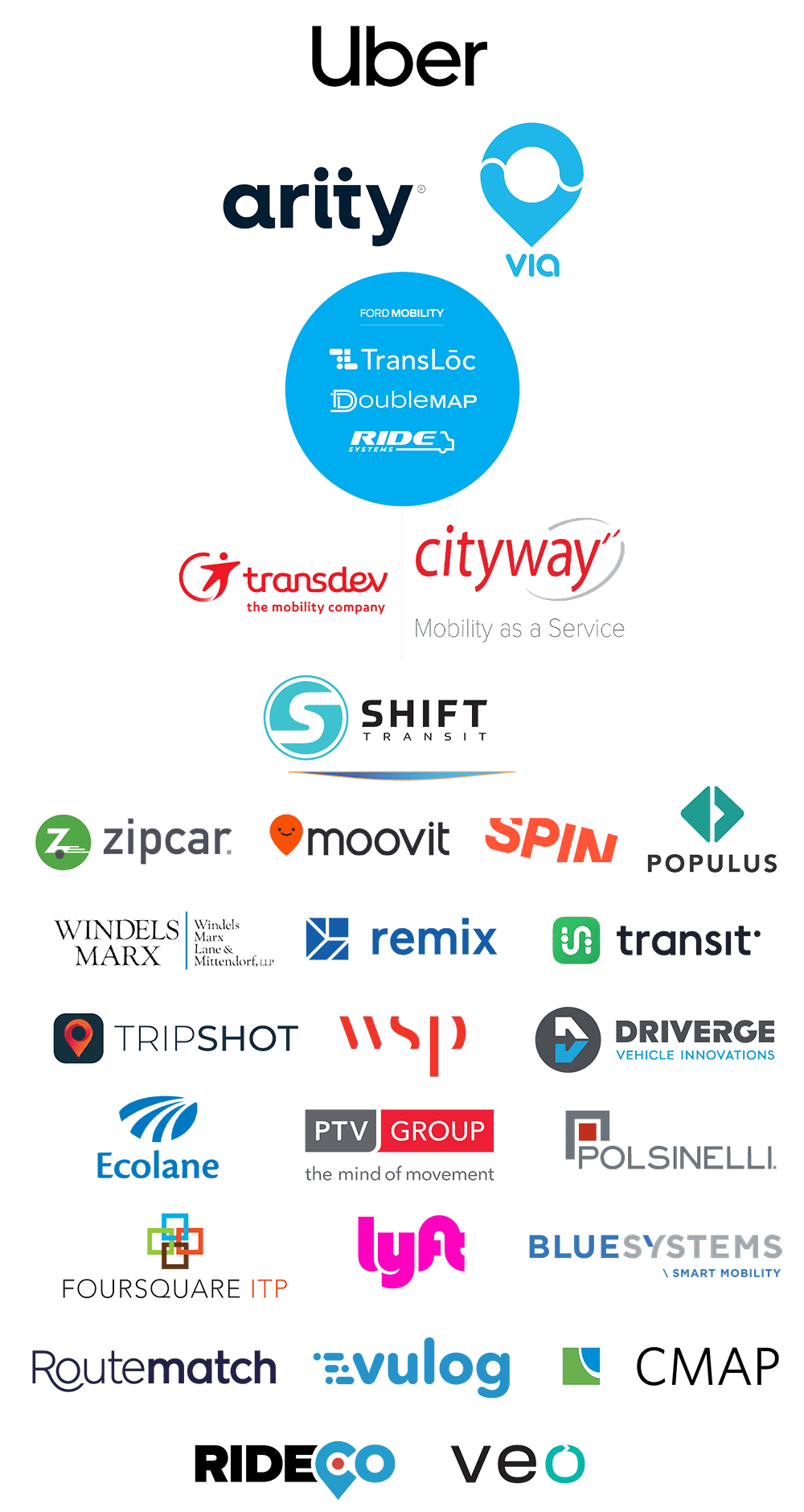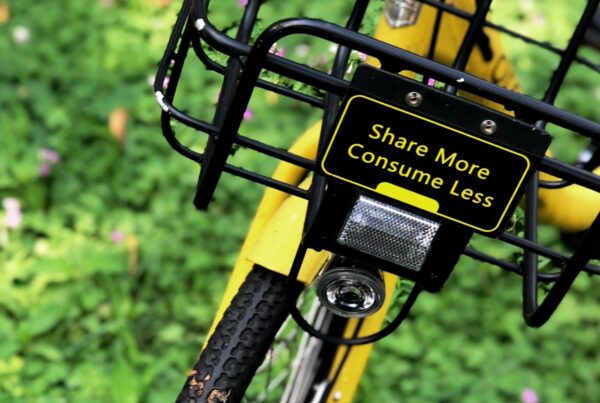Welcome to the Shared-Use Mobility Center’s weekly guide to the most impactful news, thought-provoking articles and innovative technologies that are shaping our transportation future. We believe in sharing information, just like sharing cars, bikes, and scooters, so if there’s anything additional you’d like to see, just drop us a line.
Announcements
THE SHARED MOBILITY SUMMIT IS COMING TO YOU MAY 5 & 6
Nothing is more important to us than everyone’s health and safety, that is why we are hosting our Summit virtually as a two-day, all-inclusive experience. Take a look at the real-time, interactive sessions, receptions, and one-on-one conversations that await at the:

Join us for:
- Keynote addresses and plenary sessions with the same or similar caliber of public and private-sector speakers
- 8-10 interactive panels on cutting-edge shared mobility topics
- Small discussion groups following presentations and one-on-one exchange with thought leaders
- Additional sessions on current topics prior to the virtual Summit and in ongoing sessions afterward
- A virtual Startup Spotlight competition with presentations, voting, and a finale event
- A virtual Expo and a virtual test track featuring the latest technology and products, and opportunities to speak with company representatives at booths and tables
- Digital brochure and learning materials
- Breaks in between sessions that include receptions, music, and guided movement
- Fully recorded for any missed sessions or for repeat viewing
Confirmed Sessions include:
- Technology and the Coordination of Paratransit and Human Services Transportation
- State-Level Climate Action
- Shared Mobility, Freight, and Goods Delivery
- Many more to come!
Registered for the 2020 Summit and sticking with us? You’re all set! We will be sending out the updated site and schedule soon, as well as inviting you to our next virtual pre-summit session on Health Equity and Shared Mobility.
Interested in registering for the virtual event? Fill out our interest form here.
NEW INNOVATION WITH THE FTA
Shared-Use Mobility Center to provide technical assistance for 25 mobility projects in 23 states through a Federal Transit Administration program
We are excited to announce that we will be providing technical assistance toward the successful implementation of 25 transit projects selected by the Federal Transit Administration (FTA) for the Integrated Mobility Innovation (IMI) program. The IMI grantees, which will be awarded approximately $20.3 million, will execute innovative mobility solutions in urban, suburban, and rural areas that focus on on-demand transportation, transit automation, and multimodal payment integration.
Vince Valdes, Associate Administrator for Research, Demonstration and Innovation at the FTA, expressed his enthusiasm about the collaboration, saying “FTA is excited to continue our collaboration with the Shared-Use Mobility Center, which will support our grantees as well as the broader transit industry as they seek to improve mobility through innovative partnerships, technology, and service models.”
Valdes also spoke at last week’s virtual plenary session, The Future of Multimodal Systems, where he talked about the IMI program and transit funding during the COVID-19 crisis.
“We are honored and delighted to be providing assistance to the program,” says SUMC Executive Director, Sharon Feigon. “They deserve praise for their commitment to new mobility solutions and partnerships during this difficult time.”
Ridehailing/Carsharing/Carpooling
In wake of the COVID-19 outbreak, P2P carsharing platform Getaround has seen a significant drop in service use and is now looking for a buyer.
New York’s Taxi and Limousine Commission has sent out a call for Uber and Lyft drivers who aren’t working as much because of COVID-19 to deliver food to homebound senior citizens in the city.
Two groups of Uber and Lyft drivers in Mass. are urging a federal court to reclassify them as employees with paid sick leave, but an independent advisory group and company lawyers contest they are using the same legal arguments as they did prior to the Coronavirus outbreak.
UK carpooling app Faxi is pivoting its services to help connect drivers get supplies to those in need in a move to aid with the COVID-19 crisis and the recent “stay-at-home” order announcement.
Partnerships and Programs
Healthcare transportation platform Ride Health has a new program that will use “real-time geospatial tracking and granular data” to help reduce the spread of COVID-19 between passengers and ridehail/non-emergency medical trip drivers.
UC Berkeley’s Safe Transportation and Research Center is currently taking applications for its free Complete Streets Safety Assessment program (applications due March 31) to help cities in California to make a plan for street safety improvements in high-injury areas.
San Antonio school districts throughout the city are using existing school buses and route networks to deliver meals to kids in need at apartment housing with a new child nutrition program. Next on their agenda: delivering instructional material to families and covering non-school locations.
The Southeast Michigan Council of Governments will use a combined $6.5 million in funding to boost walking and biking projects in the region, including a “greenway shared-use trail”, new bike facilities, and non-motor vehicle improvements.
Bikesharing and Micromobility
Chicago’s Divvy bikeshare is now offering free rides to critical healthcare workers and cutting single rides to $1 (and annual memberships to half price) for the general public through the end of April. Bike on, people.
In New York, health care workers can get free rides courtesy of EV moped-sharing service Revel. The company is also expanding its service area so users can get to major medical centers in response to the pandemic.
Lime has launched a new precision location-tracking technology for its dockless scooters and bikes that implements geo-fenced zones that send out alerts or commands for locking, speed, parking, and general use of its vehicles.
Micromobility startup Gotcha had to shut down its bikeshare program from the public in Syracuse, NY because of the state lockdown, so the company wants restaurants to use its bikes for delivery.
Transit
Somber news from the economic sector: see TransitCenter’s latest findings on the estimated financial impact of COVID-19 on public transportation in the US (spoiler: it’s around $26-$38 billion annually) as well as the breakdown at the state and local level.
Public transit is a life support that holds many cities together, but the necessity of its survival will need to be felt throughout communities all over the country if we expect widespread support for transit agencies in this dire time.
Because of the New York MTA’s new rear-door boarding and exiting for buses around the city to slow the spread of coronavirus, local bus service is essentially free for all passengers.
The State of New York will invest around $24 million to replace diesel-powered transit buses with all-electric vehicles with the state’s Department of Environmental Conservation and the Energy Research and Development Authority, as part of the federal Volkswagen Settlement.
Technology
Autonomous vehicle testing has suspended across the world with companies like Waymo, Uber, GM’s Cruise, Aurora, Argo AI, Pony.ai, and others halting any rides in direct response to reducing the spread of COVID-19.
Read about Georgia Tech and the City of Atlanta’s collaborative effort, the Socially Aware Mobility Lab, to change transportation systems into multimodal mobility networks that include first/last mile solutions to fix congestion and sustainability issues on Government Technology.
While many self-driving vehicle tests come to a grinding halt, the autonomous Modai, developed by Chinese online conglomerate Meituan, is being used to deliver essential groceries in Beijing communities amid the coronavirus outbreak.
Urban Sustainability
A PSA for Illinoisans (or anyone for that matter): Stay active and go outside, just make sure to practice social distancing and be safe (courtesy of Streetsblog Chicago).
Streets need to be safe and open for all types of mobility (not just cars) if we want to keep them accessible for safer, cleaner transportation. Now is as good of a time as any to reclaim roads from cars and give them back to people.
New York is looking at options to close off some streets in the city to vehicle traffic and open them up to pedestrians and cyclists, in an effort to promote social distancing to reduce the spread of COVID-19.
How has density made cities more resilient in times of crisis when services, networks, and infrastructure are needed to keep people safe, secure, and content?
Requests for Proposals, Inquiries, and Information
RFP: Management, Operation and Maintenance of Nassau County’s Fixed Route and Paratransit Services
Nassau County, NY
Deadline: April 17, 2020
RFP: Intelligent Transportation Systems
Missoula Urban Transportation District (Mountain Line)
Missoula, MO
Deadline: April 24, 2020
RFP: Paratransit Demand Response Services
Ann Arbor Area Transportation Authority Proposal # 2020-15
Deadline: April 30, 2020
We’d like to thank the following sponsors for their support of the 2020 National Shared Mobility Summit.
 Did someone forward this to you? You can sign up for our newsletter here.
Did someone forward this to you? You can sign up for our newsletter here.



